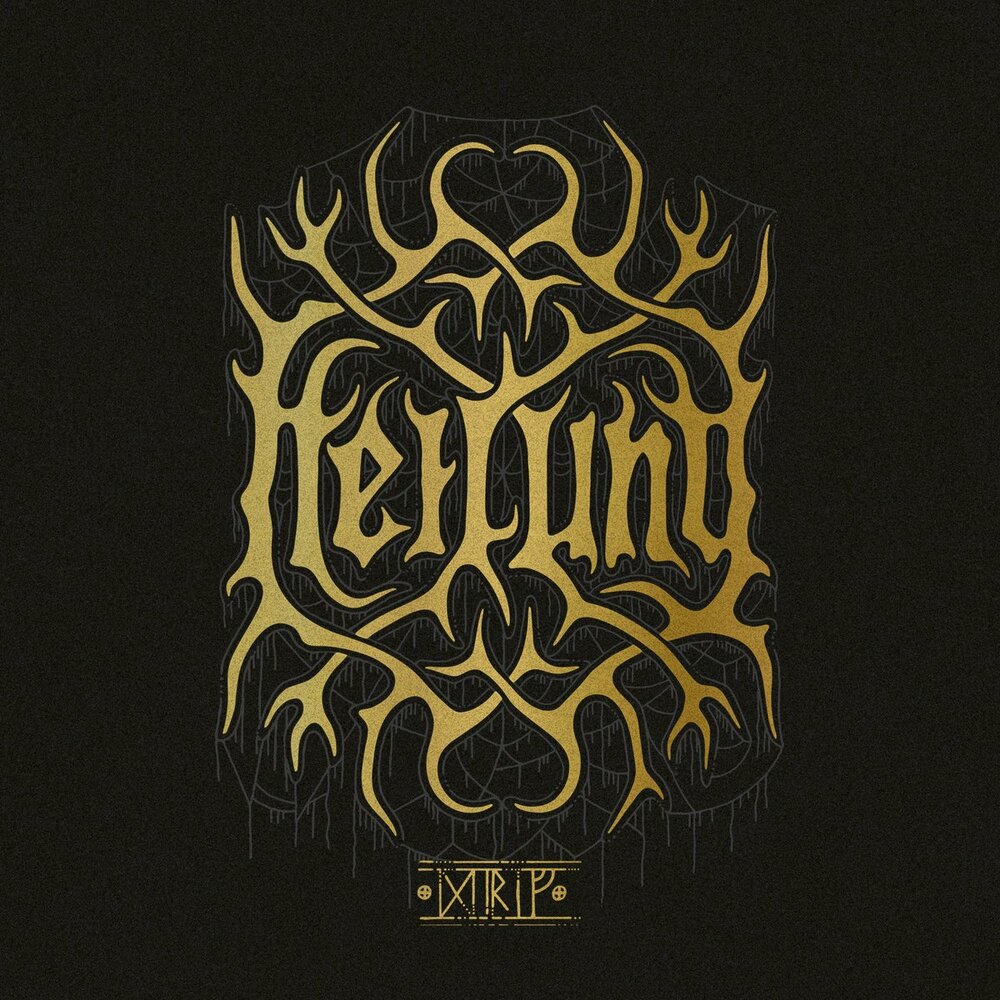 |
Country: Germany/Denmark/Norway
Style: Experimental Folk
Rating: 8/10
Release Date: 19 Aug 2022
Sites: Bandcamp | Facebook | Official Website | Wikipedia
If you haven't heard Heilung before, you should because a) they're a treat for the ears and b) you probably haven't heard anything like them before. They're variously described as a folk group, an experimental metal band and a ritual collective. They call themselves "amplified history", adding "from early medieval Northern Europe", but they've expanded far beyond that boundary, as one piece here ably highlights. It's called Nikkal and it's the oldest annoted music known to man, over three thousand years old and composed as a hymn to a Sumerian goddess. Nikkal was the wife of the moon god.
Really, they're just Heilung, because their sound is rarely comparable to anyone else. At the heart of what they do are the versatile voices of a couple of vocalists, a German tattoo artist called Kai Uwe Faust and a Norwegian prog rock singer named Maria Franz. Behind them on an orchestra of unusual instrumentation is Danish producer Christopher Juul and, between them, they conjure up a wild array of fascinating sounds. There are guests here too, a bunch of them, but I have no data to suggest what they do, so I'll just acknowledge that and move on.
Drif is their third studio album and its title means "gathering", a term that could be aptly applied to both the variety in the pieces of music on offer and to the cultures from which they're sourced. I believe most are sung in Proto-Norse, language so old that part of it cannot be translated, merely pronounced. Or maybe that's just a problem the internet has in attempting to render Heilung into English, so we can see that the opening song here, for instance, Asja, is a healing song, just as the band's name means healing.
My least favourite piece is in German, which is the eight minute epic right at the heart of Drif. I'll describe Keltentrauer as being performed because it's neither sung nor spoken, at least how you're probably imagining that meaning in a review. There's nothing wrong with it and it's highly evocative, but it also happens to be a poem delivered in German against accompanying music and sound effects of battle. It plays as a memorable experience the first time through but, unless we speak German, it turns into an overblown intro to a Manowar epic ongoing. I soon found myself skipping it. There's still a full fifty minutes of joy here without it.
I doubt many of us understand any of the other lyrics either but, unlike Keltentrauer where words are key to telling a story, it just doesn't matter on everything else. The music speaks volumes and we can tap into the mood and sentiment of each piece without problems, whether it's ethereal or aggressive. The ritual nature of some of them, with its inevitably repetitive chants may turn off a few listeners but anyone who feels music as much as they listen to it will fall into this album and be consumed by it, emerging a different person at the end.
It starts out gloriously with a piece called Asja. Faust delivers ritual throat singing with Rs heavily rolled and a beautifully resonant vibrato. Juul adds a slow beat to match the delivery of words. At first, the backing vocals are harsh and demonic but then Franz joins in with her high and ethereal melodic voice. This is a haka of a song, but one that grows as enticing as it is threatening. Anoana is just as tight and deliberate and it gives a serious effect. Franz has a very different approach on this one, shifting down octaves and moving down in the mix too. Faust is different as well, lighter and much more playful, in a back and forth conversational chant with himself.
These are resonant piees of music. Tenet is too but it gets strange. It starts out like a vocabulary lesson for kids, in palindromic form, then adds deep horns and mad growls and finally shifts into a humming motion to start the song proper. Urbani begins with what sound like crowing cockerels, before turning into a sort of military march or a piece recorded in an African village on a portable tape recorded by a roaming ethnomusicographer.
I found the first half magnetic from the outset but the second half took me a while. Nesso is quite the puzzle, because it features fascinating sounds that we can't ignore. Is that Faust or someone walking on gravel? Is that Franz or a musical bowl used like a bell? Maybe they're all conjurings of Juul using one of his esoteric instruments. Buslas Bann is a hypnotic chant with a deep male vocal that feels more repetitive than earlier ritual pieces and Franz doesn't show up.
And then we get to Nikkal, which I adore. The voices blend wonderfully and I just wish it was longer but it is what it is. We can't complain to the unknown composer, who's been dead for millennia. It's used here as a kind of intro to the closing epic, Marduk, during which Faust recites the fifty names of the Babylonian god of that name, in a ritual whisper against the backdrop of chimes and bowls. All I know here is that it isn't done in the order in the Necronomicon and it features more of those amazing rolling Rs. The side benefits of having a German vocalist!
Everything here is fascinating. Only Keltentrauer feels out of place and then perhaps only if you aren't fluent in German.


No comments:
Post a Comment